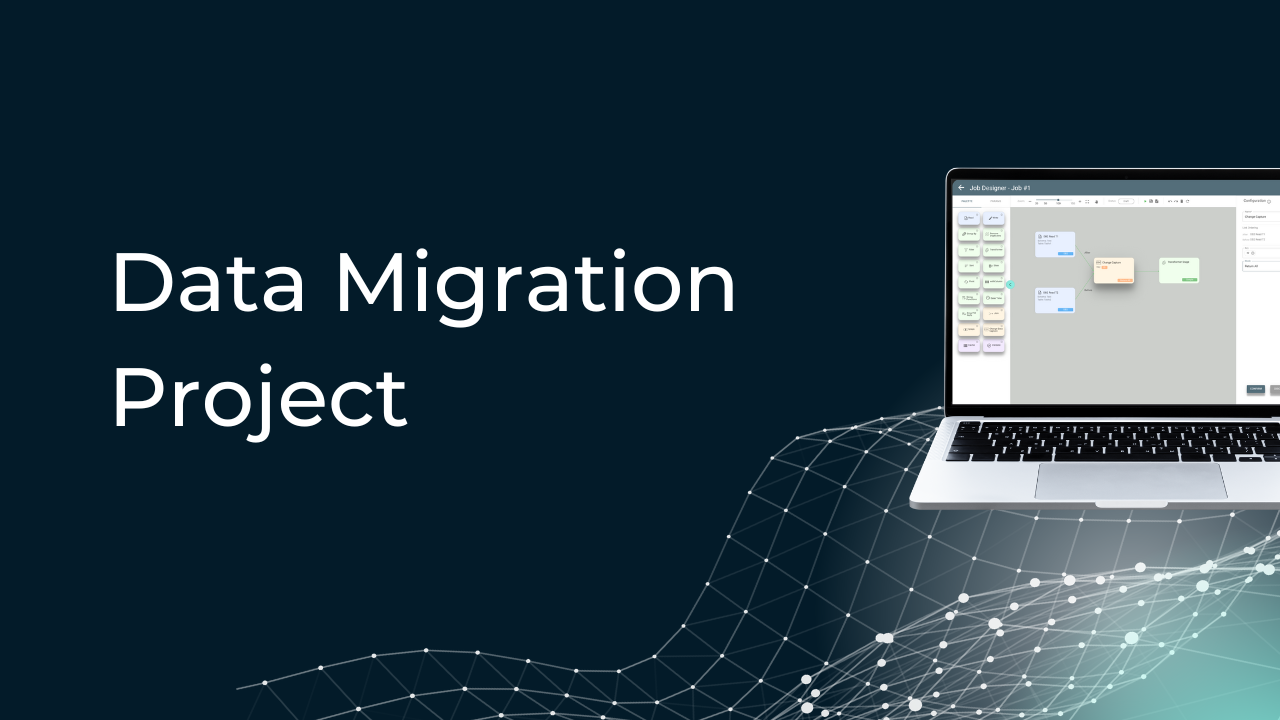Table of Content:
Table of Content:


The amount of data we produce every day is constantly increasing. For example, by 2025 we are expected to produce 463 exabytes of data per day. Some of that data needs to be processed in order to make a business decision one way or another. Because of the demand for such processing, new professions have emerged. One of them is the data engineer.
In this article, we will talk about what the role of a data engineer is. We will do this by looking at a typical workday of a data engineer – at least as far as it is possible, as there are many different data engineer tasks to be done every day. Finally, we will analyze what a data engineer can do for your business and what tools they need.
Who Is a Data Engineer?
A data engineer is a professional who collects and processes big data, loads it into a model for analysis, and then organizes its storage and further use in business. It is the fastest-growing job in the data science market.
If a data scientist is a researcher and experimenter, a data engineer is a technical organizer. They help data scientists, the marketing department, and company management get the data they need quickly and easily.
A data engineer performs the following tasks for a business:
- collects product and/or customer information from a variety of sources;
- sorts and processes the information so that it can be handled further;
- arranges for secure data storage;
- does all of the above tasks with the help of different tools and programming languages.
The data engineer deals with the tasks that are represented by the acronym ETL: extracts data (Extract), transforms and processes it (Transform), and loads data (Load). The data engineer’s tasks are to organize these processes in a pipeline, along which the data streams will move, so they can be used for making decisions. At the end of the data workflow, the data engineer organizes the database so that the right information can be pulled up and used again.
Responsibilities of a Big Data Engineer
Let’s look at their typical workday to understand more about the normal responsibilities of a big data engineer.
-
Checkups
The first thing the data engineer does at the beginning of the day is check their email and other correspondence, hoping to find no emails about data pipeline malfunctions. Sometimes they do find these emails – in these cases, the problem needs to be resolved before other tasks of a data engineer can be taken on. The reason for this is that data pipelines are often left running overnight, so even if there is no obvious problem, you should definitely make sure that nothing has gone wrong while they were unattended. Depending on the circumstances, the most common types of errors that data engineers encounter are:
- An orchestration instrument or a specific DAG indicates an error has occurred;
- A dataset was not delivered as part of an SLA (service level agreement);
- Automated tests or stakeholders indicate that the dataset doesn’t meet expectations;
Sometimes it takes only 15 minutes to fix an error, other times it takes an entire day just to find it. Good data engineers in this case follow a simple rule: the cause of the failure must be found before the business notices it. Once all the errors have been fixed and everything is working properly, the data engineer starts creating new pipelines.
-
Creating data pipelines from scratch or amending existing ones
One of the most important responsibilities of a data engineer is building data pipelines. Collecting and receiving accurate, reliable information is key to running a data-driven company. Data-engineering systems and the data they output are the foundation of successful analytics. Today, pipelines that move data from one place to another are a company’s nervous system, and the reliability and quality of the data is its pulsating heart.
Not surprisingly, much of the time out of a data engineer’s day is spent creating pipelines or tweaking existing ones. The range of duties includes accessing APIs and writing datasets using Python to S3, and then creating tables in Snowflake using SQL, putting it all into Airflow DAG, etc. Sometimes tasks of a data engineer specialist may not be as complex – for example, creating a new table from existing data to help the analysts in their work and allow them to quickly create reports.
-
Improving current infrastructure
Every business wants their infrastructure to be as reliable, scalable, and flexible as possible. After all, when the day begins with checking the system for errors, you will naturally want to prevent them from happening in the first place. So the data engineers spend part of their day analyzing the system and looking for ways to improve it.
-
Administrative work
The data engineer also performs administrative tasks. They can use this time to help new team members, plan the next morning, come up with new projects, and look for opportunities to improve existing products and features. In addition, the data engineer should pay special attention to mastering new data tools. This industry is still relatively young, and therefore, to stay up-to-date on the best practices you need to be constantly learning. In addition, data engineers are often involved in monitoring access and spending.
-
Meetings
A data engineer spends a lot of time in meetings and answering emails, like most people in the corporate world. The ability to communicate is a very important data engineer’s skill. During these meetings and correspondence, they need to explain data principles in a way that everyone can understand. The important data engineer tools are Word, Outlook, and PowerPoint. It may seem that data engineering is swimming through the waves of code and data, but a significant part of the data engineer’s day is taken up by communicating with colleagues, the customer, and the project manager. At the end of the day, their job is to solve problems, and this cannot happen without communication.
What Are the Technologies a Data Engineer Uses?
A data engineer specializes in uploading, processing, and organizing the storage of big data. Let’s see what tools and technologies a data engineering expert should be familiar with.
In general, the tools a data engineer deals with can be divided into three categories.
Engineering-related technologies
Technologies related to code writing and data pipelining:
- Java
- Scala
- Python
- R
- C/C#
- Golang
Data-related technologies
The tools data engineers need to collect and transform data:
- Hadoop
- Kafka
- TensorFlow
- Spark
- PyTorch
- mlpack
Database/warehouse
Tools related to working with databases and storing information:
- SQL/noSQL
- Amazon Redshift
- Microsoft Azure
- Panoply
- Oracle
- Talend
- Informatica
- Apache Hive
Data Engineer Skills
To organize data pipelines, data engineers need to work with databases, sometimes write services for some processes, and visualize data.
Here is a list of basic skills a data engineer needs:
- SQL (Structured Query Language). Needed to compose queries to retrieve data.
- Programming in Python, Java/Scala. Python for data engineers comes in handy for working with tables and models for creating web services. Java and Scala are all common tools for working with big data.
- Knowing how to work with big data tools (Apache Spark, Kafka, Hadoop, Apache Cassandra).
- Knowing the types of databases (relational, columnar), algorithms, and structures to work with them.
- Knowing how to use Docker. This is a containerization tool with which you can package services developed on a local computer and deploy them on any other computer.
- Data visualization tools. For example, Tableau or ElasticSearch.
Terence Shin, data scientist, did his own analysis based on 17,000 jobs and highlighted the 25 most in-demand data engineer’s skills.

How Could Visual Flow Help?
So, we have figured out the role of a data engineer, learned what daily tasks this expert faces, and what skills are required of a data engineer specialist. The question remains: where do you hire a data engineer? Since working with data is a process that requires a high level of skill, you should always turn to professionals. For example, you can contact Visual Flow.
The Visual Flow team is a group of data professionals who have developed a cloud-based ETL tool with a graphical user interface. It combines the best features of Kubernetes, Apache Spark, and Argo Workflows. Visual Flow’s founders have years of experience working for the parent company IBA Group, which gives them a deep understanding of various industries and experience with different enterprise technologies and data sources.
Just click below if you need to analyze your data infrastructure, or organize data migration and other activities related to transforming information into a valuable resource for your business. We will contact you and, after an analysis of your needs, we will find the best solution for you.
FAQ
A data engineer needs to know how to program and work with algorithms and data structures. A data engineer must know how to work with programming languages, databases, ETL/ELT data technologies, data communication tools, and cloud infrastructures.
One of the main responsibilities of a data engineer is structuring company data. A data engineer can build ETL/ELT pipelines and data infrastructures. Often, data engineers are involved in tasks related to automating processes in a company.
You can turn to proven companies like Visual Flow. When you work with Visual Flow, you get data engineering professionals along with a unique software solution.
Contact us































































